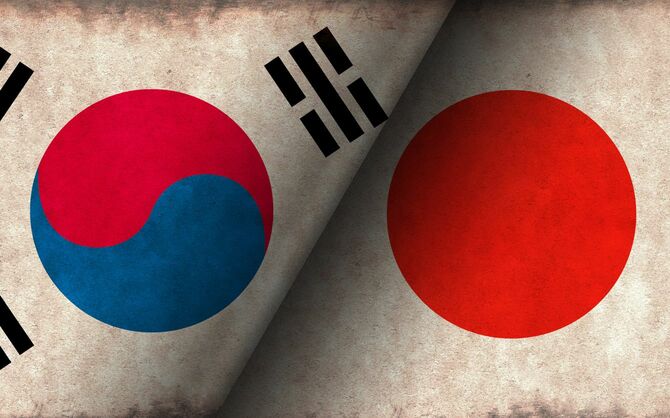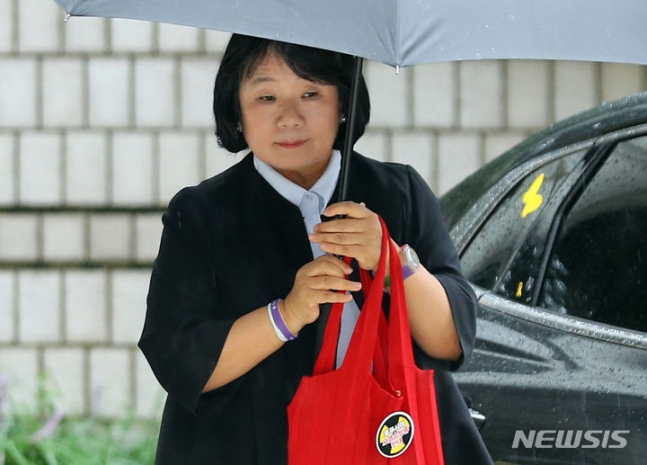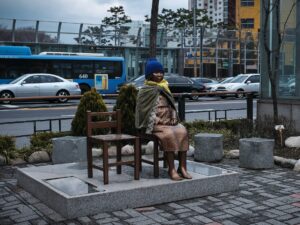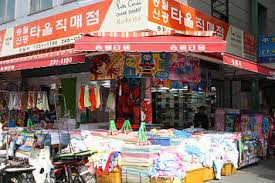, a third-generation zainichi, was astonished at the “dangerous contents” of the “treated water from the Fukushima nuclear power plant” petition drive, and the “amazing revolt” of the “Korean students” who stood up against it.
HOU SHO
The “Fukushima nuclear power plant” riot in South Korea is back again…!
The other day, the following announcement was made.
The number of foreign tourists who visited Japan in May totaled approximately 1,898,900, of which South Korea had the largest number by country/region at approximately 515,700.
While these figures are being released, some Korean media are still reporting that South Korea is “opposed” to the discharge of treated water from the Fukushima nuclear power plant, as if this is the consensus of the Korean people.
How can it be the “consensus of the people” to still cry “anti-Japan” when so many people are visiting Japan? It should be obvious to anyone, yet it is appalling that the media continues to report such things.
Then, yet another surprising piece of news emerged.
The Chosun Ilbo reported on June 19 that the Seoul branch of the National Federation of Teachers’ Unions in South Korea sent an email to all teachers in the Seoul area urging them to sign a petition against the discharge of contaminated water from Fukushima in Japan. The article states that the Seoul branch of the National Federation of Teachers’ Unions (ZENKYO) sent an email to about 70,000 teachers in the Seoul area urging them to sign a petition “against the release of contaminated water from Fukushima in Japan.
The Seoul branch of the JKU sent the e-mail to about 4,900 teachers in the Seoul area, most of whom are not members of the JKU, and the Ministry of Education has reportedly asked the police to investigate this malicious act.
It is hard to think of children’s misfortune to be educated by such “biased ideology” educators, and I have experienced it myself at the school I went to.
The “scrap Japanese goods” movement…
Just the other day, I had a chance to talk with 20-year-old Korean university students, and they told me that they no longer trust their school (elementary, junior high, and high school) teachers.
He said that cram school education is more useful than school education, and that the teachers at cram schools are more “realistic” in terms of study, without ideological preaching.
For them, the “anti-Japanese ideology of hating Japan” is a hindrance to enjoying their youth, but at school they just keep quiet for the sake of their unofficial grades.
When he was in high school, there was a “Japanese product scrapping campaign” at school during the Moon Jae-in administration, and even though he was using Japanese products at the time, he had to “throw away stationery and other personal belongings” just because they were Japanese products.
He told us of his high school days when he later felt a great contradiction: “Why should I throw things away when I liked them myself and bought them with my own money?”
In the midst of the “anti-Japanese and boycott” movement in 2019, three students from Inhon High School in Seoul, South Korea, protested, claiming that the school forced them to engage in anti-Japanese behavior.
Everyone understood that their actions could affect their future as they were about to enter university, and the reality in South Korea is that no one spoke out about their discomfort until after they had finished their higher education and found employment.
Still, there are “fighters.
Even if you are a student, challenging the administration can be detrimental to your life (and even your family) in Korea. Upon learning of the uproar (courage), I immediately had the opportunity to contact and speak with them, but my interest in them was the reaction of the adults around them leading up to the protest.
As I wrote in my book “Do You Still Want to Live in Korea?”, I was one of those who “rebelled” because of this discomfort at school. There is no doubt that my act of rebellion caused my parents and siblings to feel more or less small in the zainichi community.
Rather than my resolve, I was most interested in how the people around me reacted to their courage in protesting against the state.
This protest had also started with three people, but I was able to meet two of them and a young representative of a conservative civic organization that supported the three.
As I spoke with them, I asked them what their parents’ thoughts were, and they told me that they were not against the protest until just before the protest, and that they had stopped the protest because they were worried about their future lives.
The “courage” that caused a stir
But their initially worrisome assertion was supported by many parents nationwide, and public opinion began to feel uncomfortable with the Moon Jae-in administration, which relentlessly promotes “anti-Japanese and boycotting” policies.
I feel that the stone (courage) they threw as high school students in 2019 was really a big one.
Now that they are university students, they have traveled across the country to help other students who feel the same way, and one is now a district councilor in Gyeonggi-do and the other is in the military (draft). Both of them are still fighting for an education in Korea that is not influenced by ideology.











